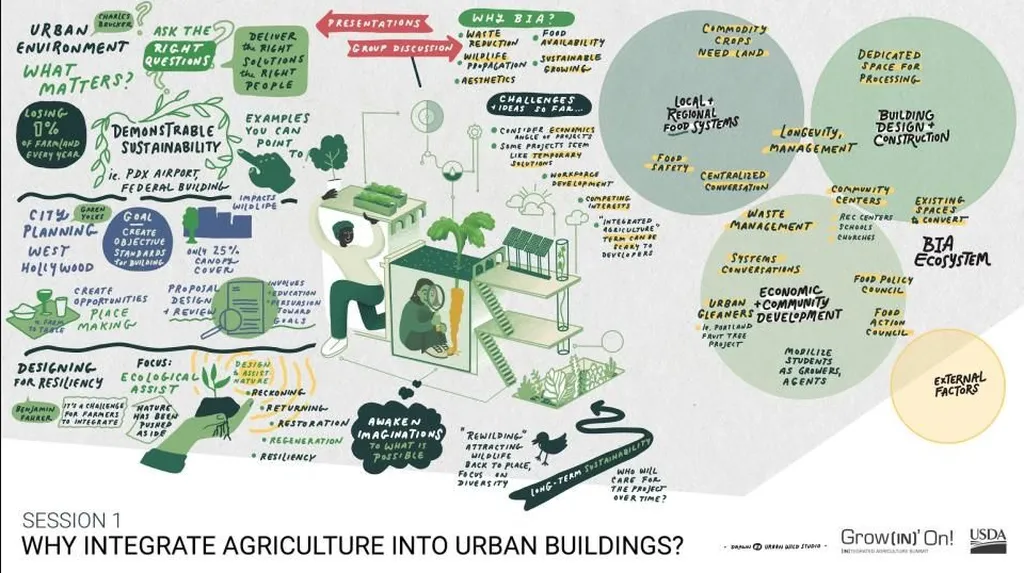In the heart of bustling city regions, a quiet revolution is taking root—urban agriculture is flourishing, promising shorter supply chains, increased food access, and robust community resilience. Yet, as this mosaic of models, from backyard gardens to rooftop farms, expands, so do concerns about equity and sustainability. A new framework, JUST GROW, published in *Frontiers in Sustainable Food Systems*, aims to address these concerns by offering a comprehensive governance approach to manage urban agriculture strategically, sustainably, and equitably.
The JUST GROW framework, led by Patrick Baur from the University of Rhode Island’s Sustainable Agriculture and Food Systems Program, incorporates three interlinked principles of justice into a governance process that includes collective knowing, inclusive deliberation, and intentional action. This approach is designed to help city regions navigate the complex social-ecological ramifications of urban agriculture.
“City regions hold much potential for advancing sustainable and just food system transformations,” Baur explains. “But amidst this flourishing, we need innovative governance approaches to ensure that the benefits and risks are distributed equitably.”
The framework offers strategies for building collaborative capacities among community, government, and research stakeholder groups. It emphasizes the importance of cocreating indicators and investing in data infrastructure to measure outcomes that matter for sustainability and equity. By aligning authority, capacity, and motivation within representative governance networks, JUST GROW creates a pathway to proactive responsibility and action.
For the agriculture sector, the implications are significant. Urban agriculture is not just about growing food; it’s about creating vibrant food cultures, supporting livelihoods, and ensuring food security. The JUST GROW framework provides a roadmap for food producers, urban planners, municipal agencies, and community groups to work together towards these goals.
“Our long-term goal is to build a process that helps city region food systems better provide key benefits from urban agriculture—for all people, now and into the future,” Baur states.
As urban agriculture continues to grow, the need for equitable and sustainable governance becomes increasingly important. The JUST GROW framework offers a promising approach to achieving these goals, potentially shaping future developments in the field and ensuring that the benefits of urban agriculture are accessible to all.
Published in *Frontiers in Sustainable Food Systems* and led by Patrick Baur from the University of Rhode Island’s Department of Fisheries, Animal, and Veterinary Sciences, this research highlights the critical role of governance in advancing sustainable and just food system transformations. As city regions continue to explore the potential of urban agriculture, the JUST GROW framework provides a valuable tool for navigating the complexities of this emerging landscape.

